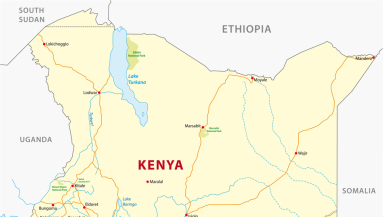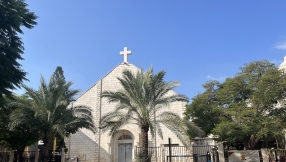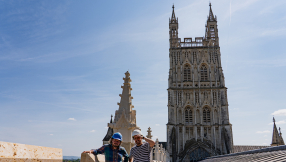
President William Ruto has unveiled plans to construct an enormous Christian church within the grounds of Kenya’s presidential residence in Nairobi - a move that has drawn both praise and fierce criticism, igniting a national debate on religion’s place in the public sphere.
The structure, according to designs published by the Daily Nation, is set to cost approximately $9 million (£6.5 million) and accommodate up to 8,000 worshippers. Featuring grand stained glass windows and modern architectural flourishes, the church is poised to be one of the largest of its kind attached to a state building anywhere in Africa.
Speaking at State House, the president remained unapologetic. “I am not going to ask anyone for an apology for building a church. The devil might be angry and can do what he wants,” Mr Ruto declared defiantly.
President Ruto, widely known for his evangelical fervour and dubbed “deputy Jesus” by both critics and supporters, has consistently infused his political messaging with biblical references and overt religious expression. His leadership has been marked by regular prayer meetings, public tears during worship, and an open-door policy for Christian leaders.
However, this latest move - to fund and build a massive church on state property - has been seen by some as a step too far. The Atheists Society of Kenya has vowed to challenge the project in court, calling it “shocking and unacceptable”.
“We view this action as anti-democratic and a promotion of Christian nationalism by President Ruto. Kenya does not belong to Christians only,” said Harrison Mumia, the group’s president.
Although the president insists the construction will be financed from his personal funds, legal experts and civil society groups are questioning the appropriateness of using public land for what many view as a private religious edifice. Others worry about the precedent this sets in a nation that constitutionally defines itself as secular.
Approximately 85% of Kenyans identify as Christian, with a significant 11% following Islam and smaller communities adhering to Hinduism, traditional African faiths, and other religions. Despite this diversity, State House currently lacks any facilities for non-Christian worship, leading to accusations of favouritism.
Catholic Archbishop Philip Anyolo has urged caution, saying more transparency is required. “We have to be very cautious with this. Such a structure ought to have been built in an area that is not a public institution. Unless what is being built is a chaplaincy - but that is also not clear.”
Critics argue that the project not only risks alienating non-Christian citizens, but may also deepen divisions within Christianity itself, unless the space is explicitly interdenominational. For now, the architectural plans appear to suggest a grand, singular Christian vision rather than a shared multi-faith space.
Beyond religious concerns, many Kenyans have expressed dismay over the timing and cost of the project, especially amid widespread economic hardship. The country continues to grapple with soaring living costs, youth unemployment, and rising national debt - making a $9 million religious complex at the president’s residence seem, to some, tone-deaf.
“It’s not just about religion,” said one Nairobi resident. “It’s about priorities. We have children out of school, hospitals without medicine - and the president is building a mega-church?”
Still, Ruto has stood firm. “I did not start building this church when I entered the State House. I found a church but one made out of iron sheets. Does that look befitting for the State House?” he asked, defending the initiative as an upgrade to an already existing but modest place of worship.
As construction preparations are ready to begin, legal challenges and public pressure could yet stall or reshape the president’s vision.













